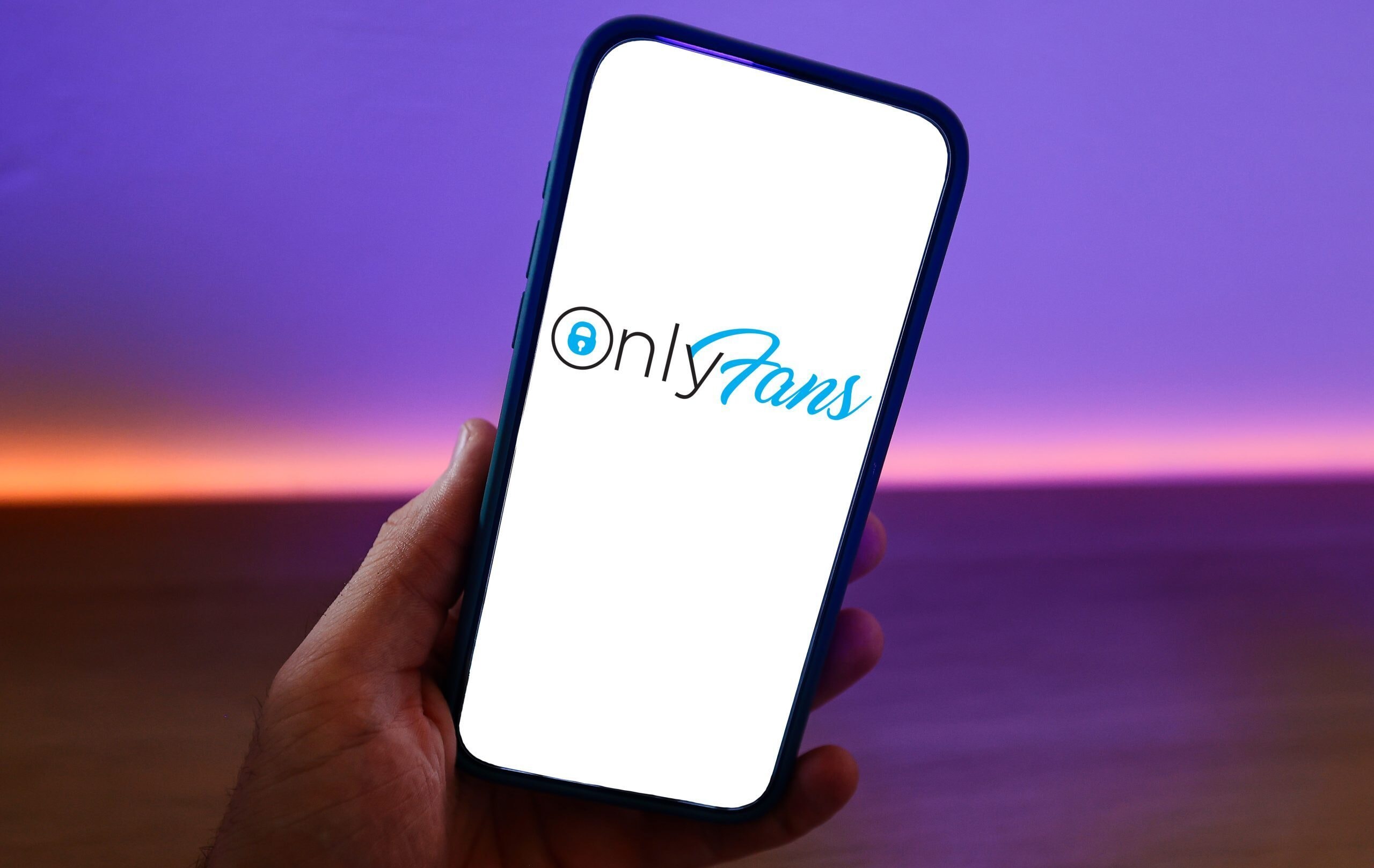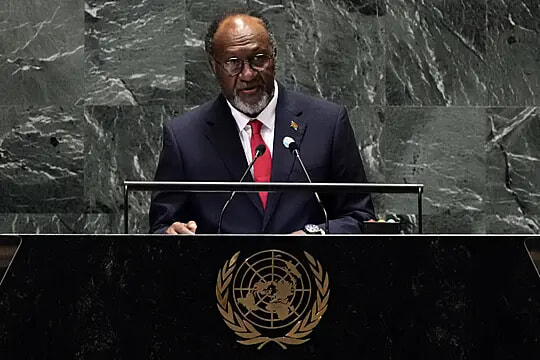
Sweden Bans Buying Onlyfans Content
This is a big move.
Published July 16, 2025
Advertisement
Advertisement
1. Digital Sweden’s Bold Bet

For decades, Sweden has set itself apart as a global pioneer in social policy, often embracing sweeping change in the name of progress. Yet, beneath the surface of this Scandinavian innovation lies a country willing to legislate the boundaries of sexuality, freedom, and technology. The Nordic Model—criminalizing sex buyers, not sex workers—took root here in 1999, spreading across Europe and reshaping debates about consent, crime, and autonomy. Now, Sweden’s lawmakers have aimed their reformist zeal at a new frontier: the internet, specifically custom online sexual content and live cam shows. This legislative drive comes as the adult content industry flourishes in the digital age, with platforms like OnlyFans transforming both sex work and the meaning of privacy. Where once street corners and brothels were the battleground, the fight has shifted to laptops, encrypted DMs, and digital payment trails. Politicians point to a new “digitalized prostitution,” where the lines between entertainment and exploitation are murkier than ever. Proponents see themselves as warriors against trafficking and abuse, their reforms portrayed as necessary for a modern, safe, and equitable society. But critics warn that with each new restriction, the gap widens between law and lived experience for those earning a living online. It’s a bold wager by Sweden’s parliament—a bet that laws forged in the age of streetwalkers can control the new economy of pixels and paywalls. The world is watching to see who wins, and who gets left behind.
Advertisement
2. Sex, Law, and Scandinavian Shadows

The July 1 law marks an escalation in Sweden’s zero-tolerance approach, this time extending criminal penalties to anyone purchasing remote, custom-made sexual content. For the state, buying a live video or custom act is now treated as paying for physical sex, with up to a year in prison on the table for violators. Those who profit from or promote these interactions—think website owners and camming platforms—face even steeper risks, with sentences stretching to four years. Lawmakers argue that targeting buyers, rather than sellers, is “modernizing” the law for an age where sex, commerce, and technology collide. But the digital world’s borderless nature means many are already searching for workarounds, VPNs, or alternative platforms beyond Swedish jurisdiction. While pre-recorded videos remain legal to view and buy, the new restrictions strike at the direct-to-consumer model that empowered countless content creators. The law’s ambiguity leaves a gray area around subscription-based content and what, precisely, counts as “custom.” Meanwhile, advocates and civil rights groups warn of growing state surveillance, encroachment on free expression, and a chilling effect for sex workers operating online. The European Sex Workers Rights Alliance calls it “repression, not protection,” accusing lawmakers of ignoring research and dismissing the voices of those most affected. Supporters insist the crackdown is about preventing harm, but detractors see a system that silences dissent by painting all sex work—virtual or not—as exploitation. In the Scandinavian twilight, the difference between safety and shadow grows ever more difficult to discern.
Advertisement
3. OnlyFans: Lifeline or Lightning Rod?

Platforms like OnlyFans have upended the old rules of the sex industry, letting creators set their own boundaries, prices, and audiences. For some, this shift meant a newfound autonomy, working from home and out of reach of pimps or predatory customers. Many Swedish creators, like Amanda Breden and Mirka Norrstrom, describe the platform as a lifeline, providing both income and independence during hard times. The law’s supporters frame their campaign as one of safety and dignity, but creators say the crackdown destroys their ability to choose safer, legal options. Amanda, who also runs a hotel and cafe, worries that OnlyFans may simply pull out of Sweden, shutting down chats and custom content altogether. That loss, she says, could force some to take riskier offline jobs or travel abroad to work. For single parents or those facing sudden hardship, digital sex work offered a bridge over desperate gaps. Now, many are cut off mid-crossing, forced to consider options that feel less safe, less predictable, and less under their own control. Norrstrom, who turned to OnlyFans after finding herself raising children alone, calls the platform her “salvation”—a word not often used in debates about pornography. For these creators, the law isn’t just policy; it’s a radical change to the choices, safety nets, and self-determination that OnlyFans once promised. As Sweden draws the line, some wonder whether the cure may be far more dangerous than the disease.
Advertisement
4. When Screens Become Shields

For years, Swedish law drew a bright line between the legal and illegal—selling sex was tolerated, buying it was not. But the digital age complicates those neat distinctions, turning screens into both shields and battlegrounds. Advocates for the law argue that the internet is now the primary site of sexual exploitation, trafficking, and abuse, demanding new tools for regulation. Parliamentarian Teresa Carvalho, a key supporter, insists the law is not about punishing adult creators, but about protecting the vulnerable, especially young people. The government points to evidence linking online sexual commerce to grooming, substance abuse, and the risk of being drawn into offline prostitution. Yet critics, including human rights groups and digital privacy advocates, counter that the law does more to endanger than protect. They warn that driving sex work underground strips away both visibility and safety, putting marginalized creators at the mercy of less scrupulous intermediaries. Some note that platforms like OnlyFans, with age verification and moderation systems, offer a safer alternative to street-based or underground sex work. The risk, they argue, is that well-intentioned laws will rob sex workers of their safest option, increasing their vulnerability to violence, coercion, or poverty. Emma Larsson, another creator, voices what many feel: “This law will push us into dangerous situations and take away our safest option.” Screens, once the promise of distance and control, may now become little more than thin glass in a gathering storm.
Advertisement
5. The July 1 Shockwave

On July 1, 2025, Sweden’s new law officially takes effect, sending ripples far beyond its borders. For the first time, buying a custom video or paying for a live sexual performance online carries the same legal risk as soliciting sex in person. This is not a ban on OnlyFans as a platform, but a targeted strike at its most lucrative, interactive services—the ones that put buyer and creator in direct digital contact. Top earners on OnlyFans—some making millions—may find ways to relocate, reroute, or disguise their business, but most creators lack those resources. Suddenly, every DM, chat, and transaction becomes fraught, as buyers and platforms wonder what will trigger an investigation. Some performers, unable to replace lost income, are already reporting pressure to offer in-person services—a riskier, more precarious path. Others face new forms of digital surveillance, as authorities look for signs of illegal activity on devices, accounts, and payment records. The law’s ambiguity breeds fear: how will police distinguish custom content from pre-recorded? What counts as “participation” in a sexual act? Sweden’s Justice Minister, Gunnar Strommer, admits the technical challenges, leaving enforcement details to police and the courts. Advocacy groups fear an era of confusion, arbitrary prosecutions, and unintended harm to both creators and customers. The shockwave is real—and where it settles, no one yet knows.
Advertisement
6. Europe Eyes the Fallout

Across Europe, governments and advocacy groups watch Sweden’s bold move with a mix of curiosity and concern. France, the UK, and other nations have introduced or debated laws that restrict or surveil adult content online, often under the banner of protecting children or fighting trafficking. The EU itself is moving to ban sexual deepfakes by 2027 and implement tougher age verification for porn sites, intensifying the regulatory push. Supporters see Sweden as leading the charge, modernizing the law for an age of AI, encrypted apps, and borderless digital economies. Critics warn that these efforts risk setting a dangerous precedent, where the state polices not just actions, but virtual fantasies and consensual expression. For tech companies, the spread of such laws complicates compliance, platform design, and market access across a patchwork of conflicting rules. OnlyFans and Pornhub say they’ll obey local laws, but creators worry about abrupt service shutdowns, frozen payments, and mass account bans. The European Sex Workers Rights Alliance calls out the risk of increased police surveillance, device searches, and criminalization of people already facing stigma. If Sweden’s model spreads, the debate over sex, speech, and surveillance will only intensify, with creators and users caught in the crossfire. Emma Larsson says bluntly: “People may not realize that this is just the beginning.” The next chapters in Europe’s digital morality play are being written now.
Advertisement
7. Consent Wars: Protection or Paternalism?

The law’s backers frame their campaign as one of consent, dignity, and public safety—but opponents argue that “protection” often disguises something darker. For many sex workers and advocates, the Nordic Model rests on a fundamental distrust of women’s ability to choose freely. The model’s logic: men buying sex are perpetrators, women selling it are always victims—even online, even when expressing autonomy. This attitude, critics say, infantilizes adult creators and ignores the diversity of experiences, motivations, and economic realities among sex workers. Sex worker organizations blast the Swedish parliament for ignoring testimony, research, and opposition from thousands of experts and rights groups. A single dismissive comment—suggesting articulate protest emails “must have been written by pimps”—captures the mood of condescension and distrust. Under the surface, the struggle is about who gets to define harm, consent, and exploitation in an evolving digital culture. Where lawmakers see risk, many creators see opportunity, self-determination, and community. Human rights groups warn that expanded criminal law risks undermining free speech, privacy, and Sweden’s own constitutional protections. Consent, they argue, cannot be legislated away or reserved for only the “right” people in the “right” contexts. The debate, fierce and unresolved, is now center stage.
Advertisement
8. Policing Pixels

Implementing Sweden’s law will require a new kind of policing, where the line between criminality and expression is drawn in data and metadata. Law enforcement agencies now face the task of distinguishing custom-made videos from pre-recorded content, analyzing encrypted chats, and tracking online transactions. Privacy advocates warn that these efforts will inevitably expand digital surveillance, exposing sex workers and buyers to state scrutiny. For many creators, the mere threat of an investigation chills their work, drives them to self-censor, or pushes them off platforms altogether. VPNs, encrypted apps, and offshore services may offer a temporary escape, but authorities warn that evasion is itself evidence of intent. The law’s critics predict a rise in black market intermediaries, less transparency, and greater reliance on unsafe payment channels. Tech companies, caught in the middle, must weigh compliance against privacy, profit, and user trust, with no clear roadmap forward. For marginalized creators—especially migrants, LGBTQ+, and women—the stakes are even higher: surveillance often brings greater discrimination and violence. Sex workers’ advocates argue that police resources would be better spent addressing real abuse and trafficking, rather than consensual adult work. Yet the drive to “police pixels” shows no sign of slowing, as moral panic and technological arms races fuel ever-tighter controls. The question is no longer if the digital sphere will be regulated, but how far—and at what cost.
Advertisement
9. Bankrupt Dreams, Vanishing Platforms

For many online creators, the Swedish crackdown is not an abstract policy debate—it’s an existential crisis. With platforms like OnlyFans retreating from Sweden, shutting down chats and custom features, thousands of livelihoods hang in the balance. Some creators have already reported being approached by men wanting to buy physical sex—a grim irony for a law intended to reduce prostitution. As account closures multiply, so do stories of bankruptcy, sudden poverty, and desperation among those who once found safety online. Advocates warn that the loss of stable, remote income will force many into riskier forms of work, or out of the workforce entirely. Cara, who left for Denmark to keep her business alive, describes an industry in shock, with “very few people” willing to simply accept the loss. Norrstrom’s story echoes this reality: after years of relying on OnlyFans to support her family, she’s now fielding offers she would never have considered before. For every high-profile creator with a global fanbase, there are thousands for whom the loss of custom content means a return to economic precarity. Platforms themselves face a choice: comply and withdraw, or risk criminal liability in an increasingly hostile regulatory environment. For now, the dreams that digital sex work once offered—autonomy, safety, connection—are evaporating in the face of prohibition. The collateral damage may last for years.
Advertisement
10. Sweden’s Choice: Crackdown or Conversation?

Sweden now stands at a crossroads, its gamble on regulating digital sex work sending shockwaves through technology, law, and culture. Supporters believe they are forging a safer, more ethical society, but critics warn that prohibition and surveillance rarely deliver on their promises. In an era defined by digital connection, the debate touches everyone: creators, consumers, lawmakers, and citizens grappling with privacy and autonomy. The new law’s ambiguities will likely play out in the courts, as police and judges grapple with defining—and prosecuting—online sex crimes. Some advocates call for greater dialogue, emphasizing evidence-based policy and the voices of those most affected, rather than top-down edicts. As tech companies adapt, users turn to new tools, and lawmakers eye the next battle, Sweden’s story is fast becoming a global cautionary tale. What began as a moral crusade against exploitation has triggered unintended consequences for thousands, while leaving the promise of digital safety unfulfilled. In the end, the challenge is to balance real risks with the realities of work, choice, and consent in a borderless world. As one creator put it, “This isn’t just about sex work—it’s about the right to decide how we live, love, and survive.” Sweden must now decide: double down on the crackdown, or open the conversation. The outcome will shape not just one country, but the digital lives of millions far beyond its borders.
Advertisement
Advertisement
You May Also Like






